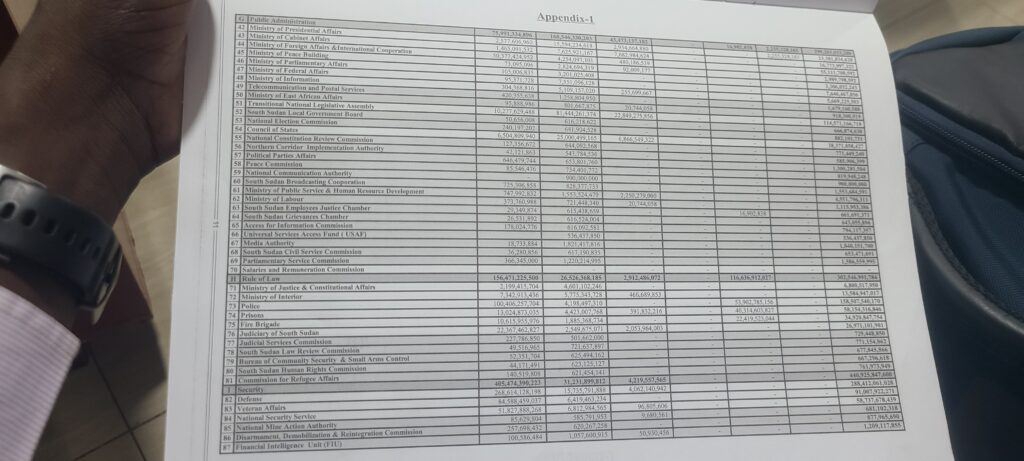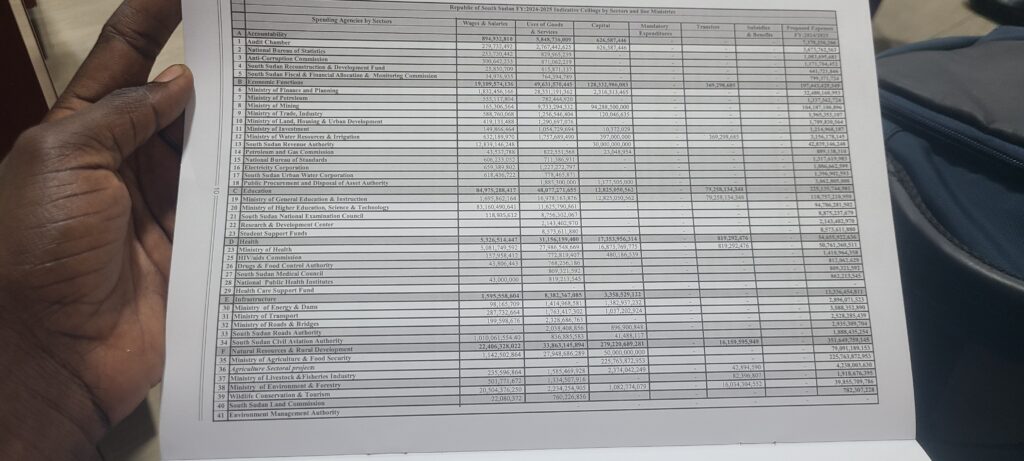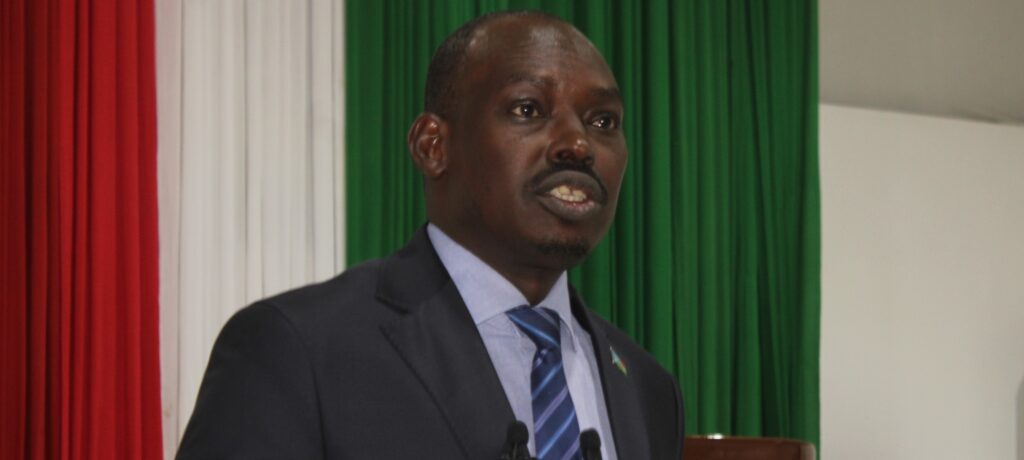South Sudan’s Ministry of Finance and Planning on Wednesday tabled the draft 2024/2025 budget in the Transitional National Legislative Assembly (TNLA.
The SSP4.1 trillion budget mainly focuses on reviving the economy with the highest allocation of 19%, equivalent to SSP773.8 billion, designated to wages and salaries.
The other higher allocation of 15% SSP642.3 billion, will cater for salary arears for both civil servants and the organized forces.
Another allocation of 10%, amounting to SSP412.5 billion, is earmarked for goods and services. The Finance ministry allocated 10% of the total amount, or SSP419.3 billion, to the states and the administrative areas, including their organized forces.
Other allocations include the capital expenditure, in which 11.8% of the total budget or SSP493 billion, is allotted.
Meanwhile, under the mandatory expenditure, the government allocated 3.8% of the budget, or SSP157 billion to funding transfers to Sudan; 0.5% or SSP22.8 billion to the transfers to oil producing states; and 0.8%, SSP34.2 billion to the oil producing companies.
Other mandatory expenditures include the allocation to the Ministry of Petroleum of SSP34.2 billion, or 3% of the budget; and 6.9% or SSP286.6 billion to debt repayment.

The Finance and Planning Minister, Marial Dongrin Ater, said that for effective implementation of this year’s budget, his ministry would pursue some specific policies.
“To ensure the effective implantation of this year’s budget, the Ministry of Finance and Planning will be pursuing raising revenue collection target to SSP1.119 trillion, and allocating SSP30 billion to strengthen tax administration modernization,” Ater said.
The minister said fiscal deficit amounting to SSP1.9 trillion, which is 45% of the proposed expenditure, will be covered by the oil (Dar Blend exports), undertake exchange rates realignment, grants and borrowing, expenditure rationalization, cut down on capital expenditure and cut on foreign travels.
Other options to finance the deficit include exchange rate alignment, grants and concessional loans in line with reforms to fix the deficit.
Some MPs boycotted the session, saying tabling the new budget when the previous one was not implemented, with civil servants going for nearly 10 months, was a failure.
Juol Nhomngek (SPLM-IO) said decided to boycott the sitting because it was inappropriate for the country to table a new budget when the old one had not been implemented.
The lawmaker said it makes no sense to pass a budget every year but fail to implement it.
He further stressed the need for accountability in the government spending.
“Constitutional governments mean a government which is accountable and is governed according to the constitution. We have the constitution in South Sudan and we have the laws,” he said.
Lawmaker Paul Baba said the 2024/2025 budget had not stated exactly how the suffering of the people would be alleviated.
He said the budget only catered for salaries that at the end would not be paid.
Baba further called for the presentation of the expenditure report for 2023/2024 budget.
“We are asking about expenditure report. What is the expenditure report for last year? If the budget for last year was spent, then we need to see the expenditure report. How was the budget spent? It’s just wasting people’s time that we are making budget.”
Reacting to the draft budget presentation, Ter Manyang Gatwech, the Executive Director of the Center for Peace and Advocacy (CPA), said Parliament was supposed to ask for public opinion to enrich the draft budget.
“The other concern is also the issue of accountability and transparency. They talk about SSP4.1 trillion this year, and if last year’s budget was not implemented, if the civil servants for 9-10 months without pay, why do we need another budget when there is no implementation?” he asked.
South Sudan has lagged behind its East African Community (EAC) partners—Kenya, Tanzania, Uganda, and Burundi—who have already presented their annual budgets in June, adhering to an established regional tradition.
The world’s youngest nation faces severe inflation, aggravated by the weakening of the local currency against the U.S. dollar. The crisis was further compounded when a major oil pipeline, responsible for transporting 60 percent of crude oil to Port Sudan, suffered a breakdown in February 2024. Families are now struggling to afford necessities due to the sharp increase in prices.





